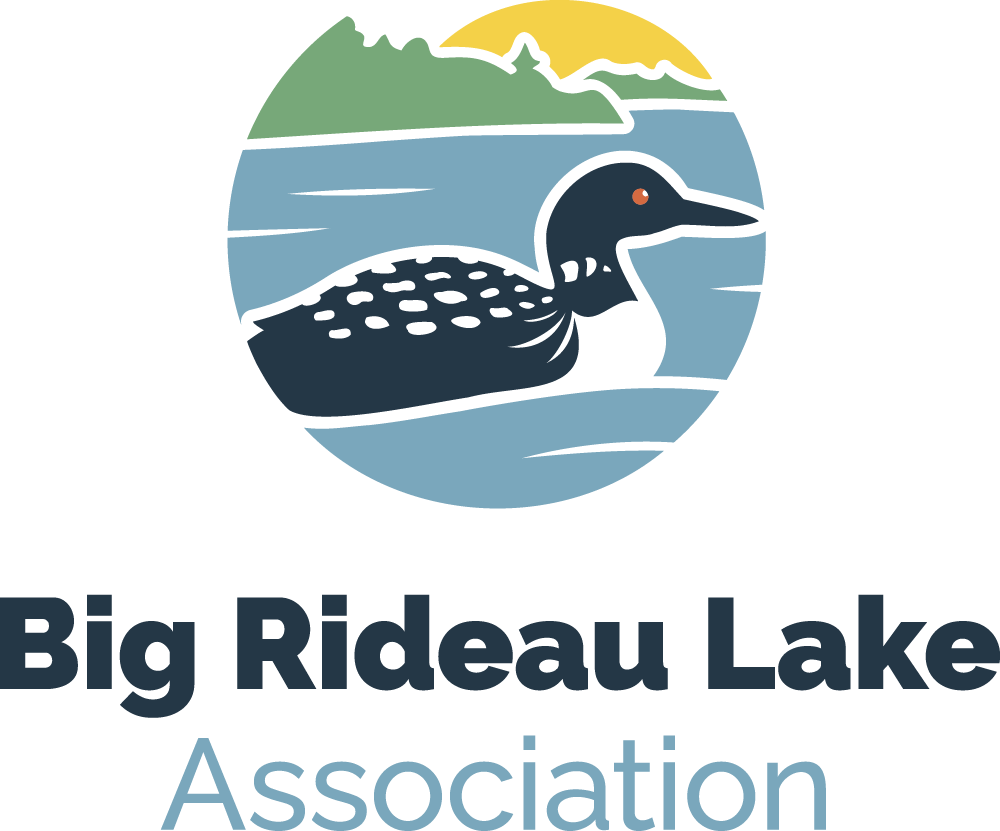Operating Offshore Boats in ‘Off Muffler’ Mode is "Off ensive"
Prepared by the Big Rideau Working Group, an independent group of concerned lake property owners
One of the great features of Big Rideau Lake is the wide diversity of boating being enjoyed thanks to the size of our lake and it’s unique role as an integral part of the Rideau Canal.
Everyone is familiar with the class of boats known as “offshore” or “cigarette” boats that add a unique dimension to life on Big Rideau during the summer months.
The issue being raised here is that certain operators of offshore boats choose to operate in the ‘off muffler’ position. (a switching mechanism that removes the muffler from exhausting below the water line resulting in higher horsepower). Unfortunately, this also results in extreme DB (sound pressure) levels that directly impacts shoreline residents especially when you take into consideration the physics of how sound travels on water.
Transport Canada’s regulation TP1332E - Appendix 3.0 Noise Reduction addresses muffler requirements for all vessels. The regulation can be seen at https://www.tc.gc.ca/eng/marinesafety/tp-tp1332-menu-521.htm
Most boats used on Big Rideau (e.g. outboards and stern drives) exhaust through the propeller below the water line and do not have off muffler switches. Offshore type boats are allowed to operate off muffler under the current regulation only if they are more than 5 nautical miles from shore. Antique boats built before 1960 are exempt from the muffler regulation. Please see the full explanation of the regulations in the above mentioned link.
Transport Canada evaluated Big Rideau Lake and confirmed to us the following:
“We have looked at Big Rideau Lake and have found that there is no point on this water body where a vessel can be more the 5 nautical miles from shore. All pleasure craft operating on Big Rideau Lake are required to have a muffler that is in good working order.”
Transport Canada’s regulation specifically prohibits the use of an off muffler switching mechanism: “No person shall operate or permit another person to operate a power-driven vessel equipped with a muffler cut-out or by-pass unless the muffler cut-out or by-pass is visibly disconnected in a manner that ensures it cannot be easily reconnected while the vessel is in operation“.
The regulation is aligned to the international SAE J1970 standard for sound level measurement procedures for recreational boats. These procedures were developed due to “excessive shoreline sound pressure from off muffler operation on inland rivers and lakes representing a major public health and safety issue”.
The $500 fine for contravening the off muffler switching element of the regulation can be found at http://laws.justice.gc.ca/eng/regulations/SOR-96-313/page-4.html#h-6.
Through networking with Lake Associations in the region, we had a chance to raise this issue with the OPP directly at a meeting last September. The OPP acknowledged the regulation but said that unless they receive complaints about off muffler operation, their resources are generally deployed on other priorities.
For those lakeside residents that are impacted by this and want to make their concerns known, the following is the process to use:
Register Your Complaint:
- The best course of action is to obtain a detailed description of the vessel and where and when it is occurring; who, what, when, where, photo, name, colours, hull numbers etc. The more information the better.
- Call the OPP Call Centre at 1-888-310-1122. All calls are are reviewed by the OPP’s analytics process to prioritize resources. The important point is to let the OPP Call Centre know about it. It will be up to the OPP to judge the deployment of resources but without a record of anyone calling about this issue, it is difficult for the OPP to do anything about it.
- If the offensive noise continues to bother you - call again.
This article is rooted in the ‘Share the Lake’ Public Awareness Campaign being developed by the Big Rideau Working Group (BRWG). Please see more about the Share the Lake concept on BRWG’s website (www.sharethelake.ca) which outlines the group’s objective of using a collaborative approach with all stakeholders when dealing with concerns around boating or other activities on Big Rideau Lake. You can also email us at sharethelake@gmail.com or find us on Facebook at ShareTheLakeCanada.
Let us know what you think and enjoy the water this summer!
This article, like all of the How the Lake Works series, is presented in a blog format. We welcome and encourage your comments - if you would like to engage in the discussion, please post your comments below.


![FINAL BRLA HOWtheLAKEworks[FINALARTWORK]-01.png](https://images.squarespace-cdn.com/content/v1/5609ac7ae4b0659a7fa58630/1521919544914-I5W8EXHA70ZYIC3KD9AU/FINAL+BRLA+HOWtheLAKEworks%5BFINALARTWORK%5D-01.png)

